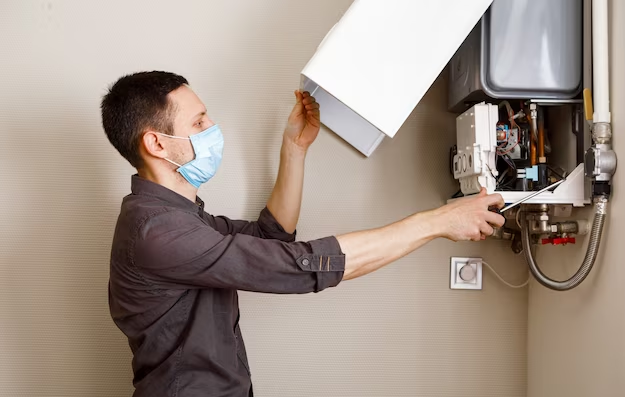Boilers are a vital component of many homes, ensuring a steady supply of hot water and maintaining a comfortable indoor temperature. However, encountering low pressure in your boiler can be a frustrating and inconvenient issue. Fortunately, understanding the potential causes and implementing the right solutions can help rectify this problem swiftly and effectively.

Identifying Low Pressure Symptoms
Before diving into solutions, it’s crucial to recognize the signs of low boiler pressure. Common indicators include:
Drop in Heating Efficiency: If your radiators aren’t heating up as expected, it might be due to low pressure within the boiler system.
Audible Noises: Gurgling or unusual noises coming from the boiler could signal low pressure.
Visible Pressure Gauge Changes: Most boilers have pressure gauges; if it’s reading below the recommended level (often around 1 bar), this indicates low pressure.
Potential Causes of Low Pressure
Several factors can contribute to low pressure in your boiler:
Water Leaks: Leaks in the heating system or boiler itself can cause pressure loss. Check for any visible leaks or damp areas around the boiler.
Bleeding Radiators: If you recently bled air from your radiators, it might have led to pressure reduction.
Faulty Pressure Relief Valve: A malfunctioning pressure relief valve can cause pressure fluctuations.
Closed Valves: Closed or partially closed valves in the system can obstruct water flow, leading to reduced pressure.
Steps to Rectify Low Pressure
1. Check for Leaks:
Inspect the entire system, including pipes, radiators, and the boiler itself, for any visible leaks or drips. Address any leaks promptly by tightening fittings or contacting a professional if needed.
2. Re-Pressurize the System:
If there are no leaks, you can re-pressurize the boiler. Locate the filling loop (usually a flexible hose connected to the boiler) and follow the manufacturer’s instructions to add water until reaching the recommended pressure level, typically around 1 to 1.5 bars.
3. Bleed Radiators:
Bleeding radiators helps remove trapped air, which might be causing pressure issues. Use a radiator key to open the bleed valve slightly until air stops escaping and water appears. Remember to have a towel handy to catch any drips.
4. Check Pressure Relief Valve:
Ensure the pressure relief valve is operating correctly. If it’s faulty, it might need replacement by a qualified technician to restore proper pressure control.
5. Open Closed Valves:
Check that all valves within the system are fully open to allow proper water flow. Closed valves can restrict water circulation, leading to pressure drops.
6. Reset the Boiler:
Some boilers have a reset button that can help resolve minor issues causing pressure problems. Refer to the boiler’s manual for instructions on resetting it.
7. Seek Professional Help if Necessary:
If despite these steps, the problem persists, or if you’re uncomfortable performing these checks yourself, it’s advisable to contact a certified boiler service engineers. They can conduct a thorough inspection and provide the necessary repairs or adjustments.
Preventative Measures
Regular boiler maintenance can prevent future occurrences of low boiler pressure. Consider these preventive measures:
Annual Servicing: Schedule annual maintenance with a professional to ensure the system operates efficiently and identify potential issues early.
Monitor Pressure Regularly: Check the pressure gauge periodically to catch any drops before they become problematic.
Address Leaks Promptly: Attend to any leaks or drips immediately to prevent pressure loss.

Final Thoughts
Dealing with low pressure in your boiler can be resolved through systematic troubleshooting and appropriate action. By identifying the potential causes and following the outlined steps, you can often rectify the issue and restore your boiler’s efficiency. Remember, if in doubt or if the problem persists, seeking professional assistance? boiler service London is always the best course of action.




